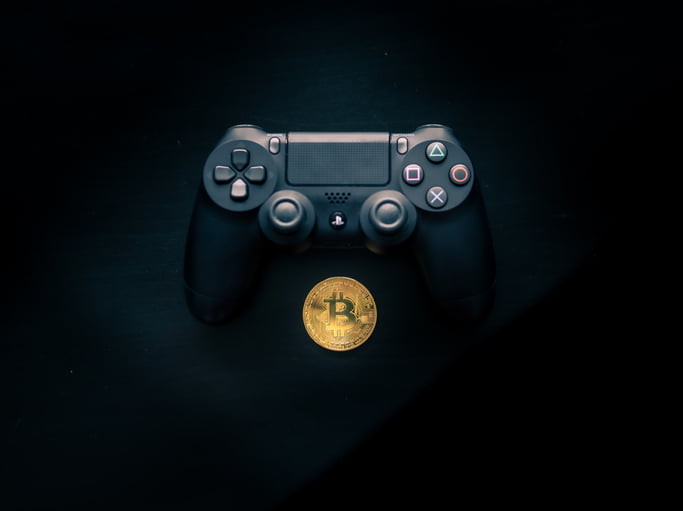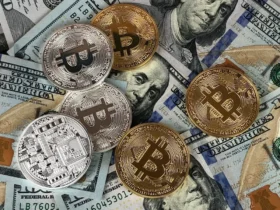Between 2020 and 2025, the gaming sector is expected to increase by 9.17 percent, with a total value of $152 billion in 2019. Consequently, by 2025, the total value is expected to reach $257 billion. Any industry that grows swiftly enough to reach this size is bound to include the most recent technological trends and advancements. Industry-wide, this is true.
In this post, we’ll look at how the multi-trillion-dollar crypto market has been incorporated into the regular gaming sector.
Table of Contents
Cryptocurrency Ownership Is More Desirable Among Gamers:
Accounting software can be useful in managing the finances of the gaming industry, which now accounts for one-third of the global population. A projected 41.9 million gamers worldwide will have their cryptocurrency by 2020. The gamer population was heavily skewed toward younger generations, with the millennial generation accounting for most of the group.
38 percent of the 41.9 million players who owned cryptocurrency were between the ages of 21 and 38. 55% of millennial gamers own cryptocurrency, compared to 5% of all millennials, which is an essential finding in the gaming-crypto nexus. Players appear to be more interested in cryptocurrency than non-players.
The Asia-Pacific area has a sizable lead in the number of players who hold cryptocurrency. Twenty-two million gamers worldwide have bitcoin, 5.9 million in Europe, 5.8 million in the Middle East and Africa (including the Arab world), 4.3% in Latin America, and 3.3% in North America.
As a result of their popularity, crypto gamers in the Asia Pacific region generate the highest revenue. Over half (49%) of all cryptocurrency gaming revenue is generated in the Asia-Pacific region. The rest of the money is generated by players in North America (25%) and Europe, the Middle East, and Africa.
The crypto gaming community prefers mobile games over other platforms. Smartphone games provide 40% of total crypto gaming income, followed by console games at 28%. They are listed according to revenue share: downloadable or packaged PC games, tablet and browser PC games.
Gaming and Cryptocurrency:

Even though the data shown above sheds some light on the area where cryptocurrencies and gaming converge, the real mystery remains as to why players like them. There are a variety of good reasons for gamers to consider using cryptocurrency.
Three-quarters of online gamers are eager to trade their virtual assets for a currency they can utilize to buy and sell on other platforms in exchange for a virtual currency. The decentralized nature of cryptocurrency allows users to create and exchange their own digital assets.
It’s possible to buy, sell, and trade cryptocurrencies from anywhere on the globe. One of the most compelling arguments in favor of crypto assets is that they provide a simple and secure means of accumulating wealth.
The game industry relies heavily on in-app purchases, in-app advertising, and affiliate marketing to generate money. Using cryptocurrency, it is easy to buy additional lives or custom characters. In contrast, gaming platforms frequently use bitcoins as a form of payment. Video advertising and surveys can be viewed and completed in exchange for tokens from gaming sites.
In addition, a growing number of crypto casino platforms are accepting cryptocurrency payments and rewards, making it easier for cryptocurrency owners to use their assets.
Defi Rise:
The democratization of gaming has been made possible in large part due to the development of cryptography in the gaming industry. It has helped to shatter the monopoly of the game operator or the gaming platform owner corporation by giving gamers more control over their gaming experience and rewards.
Video games may now operate on a crypto network using a distributed ledger thanks to blockchain technology and distributed ledgers. It provides users with the ability to prove they own the virtual goods they create while playing the game. As previously mentioned, players may exchange virtual goods for cryptocurrency, which can then be exchanged for real money.
Players, not only owners, are reaping the benefits of crypto gaming since ownership and control have returned to the players. It is essential to note that every time a player purchases an object, the value of that asset is added to the overall game economy. In addition, a slew of new businesses has sprung up to let gamers make money by using virtual goods to complete in-game goals.
NFT Gaming: Play to Earn Concept
Play-to-earn is another prominent NFT gaming industry that has emerged. A utility, armory, land, or any other item can be turned into an NFT in NFT video games.
As a non-fungible token (NFT), you may own, transfer, and sell your tokens on the blockchain. Additionally, these gaming companies provide gamers with NFT marketplaces to trade and sell their own NFTs.
France’s Ubisoft is a major player in the video gaming industry has emerged as a major participant in this market, particularly in projects based on the play-to-earn idea. Already, Ubisoft has invested in Animoca Brands, a blockchain gaming startup, and hopes to incorporate blockchain technology into its future games through this investment.
According to Ubisoft officials, play-to-earn will become increasingly common in games because of the use of blockchain technology. Many small firms have also become involved in order to help it reach its aim.
Introducing Cryptocurrency to Gaming:
Blockchain technology eliminates the need for centralized and bureaucratic agencies in every sector. The removal of obstacles and intermediaries makes it easy for gamers to access their games fast, smoothly, and hassle-free. Cryptocurrency payments are also more efficient since they are instantaneous, widely accepted, and easy to use. Decentralization also aids in the sale of game software outside of app stores by game creators.
Using borderless cryptocurrency reduces the risks and costs often associated with international commerce and payments by removing the need for fiat currency. A player’s email address isn’t essential to participate in the game. It protects the player’s identity from being hacked. Being able to withdraw money from any place, regardless of geography or identification limitations, is made easier by being borderless and less identity-sensitive.
Everyone’s main goal is to keep themselves and their possessions safe and secure. The trustless security provided by blockchain technology is often regarded as the best in the industry. There are no key duplications thanks to its immutable ledger system reduce the possibility of hacking and stealing keys, preventing the unlawful exchange of assets.
Traditional payment options, such as credit cards, bank transfers, and so on, include hidden costs and maintenance expenses. Because of this, crypto payments are significantly less expensive. As a result, the period value of money is also saved since funds flow more quickly. It is peer-to-peer or decentralized finance. Because of this, there are no costs associated with the transaction or the exchange. Using cryptocurrency as a medium of trade allows players to get the most for their money.
These advantages, along with the technological potential of blockchain, make gaming easier for gamers. As a result, gaming may become a lucrative business. Developers are able to communicate directly with and reward their consumers. There are no winners or losers when it comes to cryptocurrency adoption in the gaming business. The application of blockchain in gaming is expected to rise in the near future.

















Leave a Review